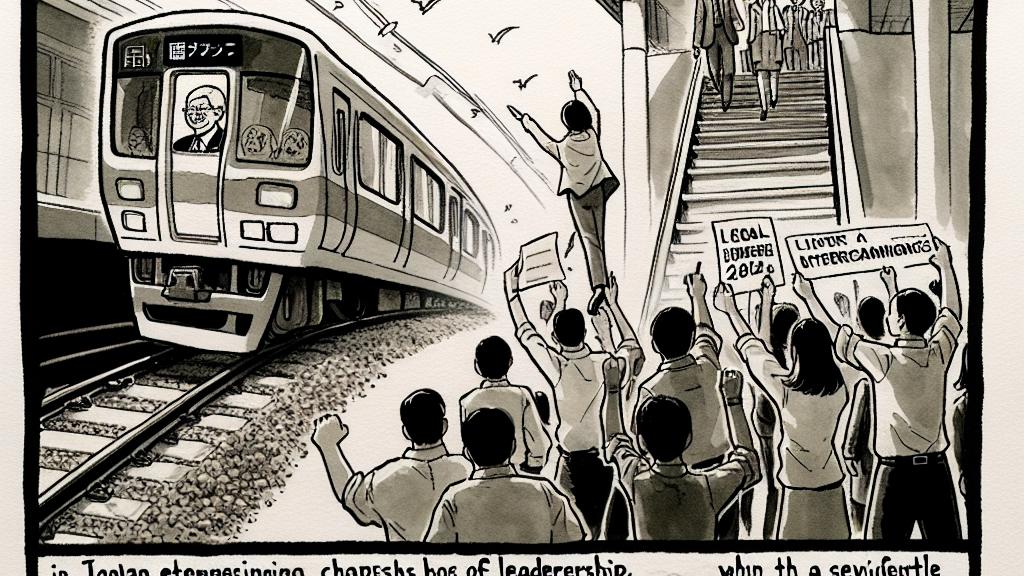Ishiba Becomes New LDP President, Maehara Celebrates
Overview
- Shigeru Ishiba has been elected as Japan's new Liberal Democratic Party (LDP) president, heralding a transformative era.
- Seiji Maehara, a close political ally, joyfully applauds Ishiba's victory, showcasing their enduring friendship.
- Ishiba's presidency promises significant reforms aimed at restoring public trust and revitalizing local communities.

A Transformative Leadership Choice
On September 27, 2024, history was made as Shigeru Ishiba was elected president of the Liberal Democratic Party (LDP) of Japan. This pivotal moment not only signifies the end of Fumio Kishida’s administration but opens a new chapter filled with hope and potential. Ishiba, widely regarded for his passionate advocacy of local initiatives and his fascination with trains, represents a shift towards grassroots politics. His commitment to positive change is rooted in real connections with citizens. By prioritizing public engagement and focusing on practical solutions, Ishiba aims to rebuild trust in a political system that many feel has drifted far from the electorate's needs.
Celebration of Friendship and Political Aspirations
In a spirited celebration, Seiji Maehara, a prominent opposition leader and longtime friend, shared his heartfelt joy at Ishiba's election. 'I think I likely share the most drinks with Ishiba than anyone else in the opposition!' he humorously declared, illuminating the warmth of their friendship. Comments like these reflect a broader sentiment among Japanese citizens who yearn for collaboration rather than confrontation in politics. This candid expression of camaraderie serves as a reminder that political friendships can serve as bridges during times of division. It hints at an era where mutual respect among lawmakers could catalyze collective progress, enhancing the democratic process in Japan.
Confronting Challenges with Visionary Ideas
Ishiba's ascension to the presidency comes laden with expectations and challenges. He seeks to tackle pressing issues head-on, such as the imperative need for transparency in government operations and a renewed focus on community revitalization. Ishiba’s innovative proposal for an 'Asia version of NATO' aims to establish stronger regional security ties, a vision that resonates strongly given current global uncertainties. Furthermore, by engaging with diverse communities across Japan, he intends to address their unique concerns and aspirations. If successful, Ishiba’s leadership could redefine the relationship between the government and the governed, ushering in a more participatory and responsive political climate that the people of Japan have been craving.

Loading...